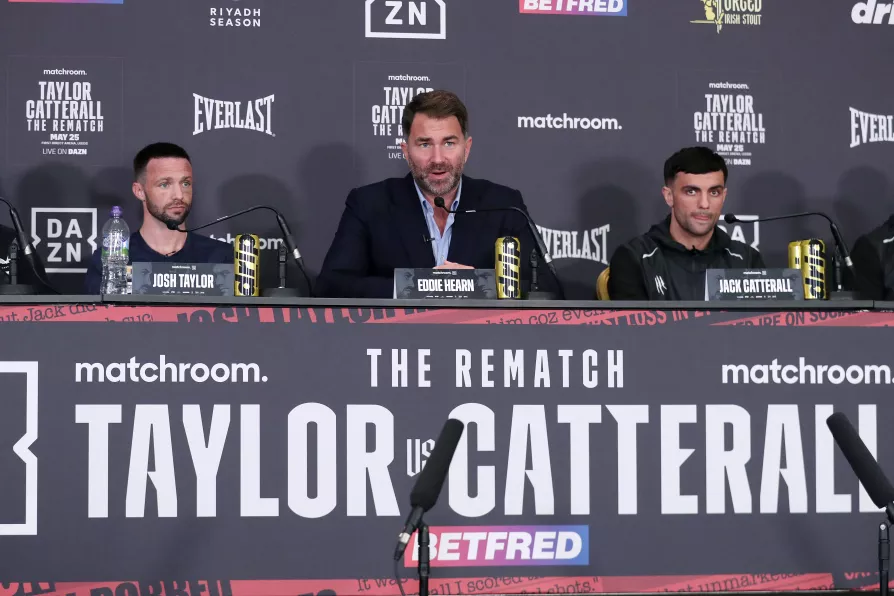
 Josh Taylor (left), Jack Catterall (right) and promoter Eddie Hearn during a press conference at The Queens Hotel, Leeds, May 23, 2024
Josh Taylor (left), Jack Catterall (right) and promoter Eddie Hearn during a press conference at The Queens Hotel, Leeds, May 23, 2024
QUICK on the heels of Tyson Fury’s stunning clash with Ukraine’s Oleksandr Usyk for the undisputed heavyweight title in Riyadh, one that saw Fury taste defeat for the first time as a professional, Scotland’s Josh Taylor faces bitter rival Jack Catterall in Leeds in a domestic encounter and rematch that’s been a long time coming.
The first fight ended with a controversial majority points decision falling in Taylor’s favour, in the aftermath of which the Scotsman incurred the wrath of Catterall and many boxing fans and pundits. He and his family were even subjected to death threats, such was the level of vitriol thrown in his direction. The result is this weekend’s rematch in Leeds with bad blood written all over it.
There are some, including this writer, who have questioned Taylor’s ability to make the 140lb super-lightweight limit healthily, given his age and 5ft-10in frame. Because if his last couple peformances are anything to go by — his controversial points victory over Catterall and his defeat against Teofilo Lopez — there is a marked difference between being able to make a given weight, and being able to perform at it over 12 hard rounds.

JOHN WIGHT previews the much-anticipated bout between Benn and Eubank Jnr where — unlike the fights between their fathers — spectacle has reigned over substance












